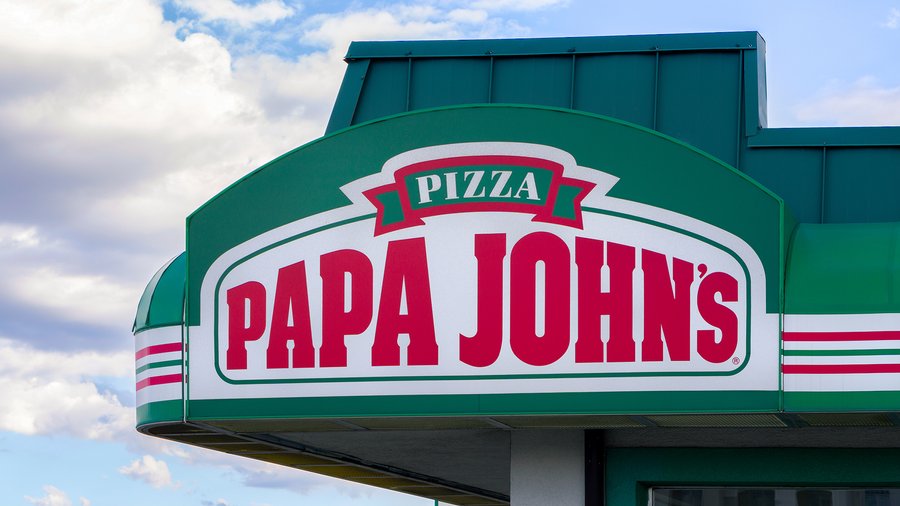Papa Johns' announced withdrawal from Russia — after its CEO initially predicted the war in Ukraine would not affect its business — highlights how big companies increasingly must factor social issues into their business plans.
Last week, Atlanta-based Papa John's International Inc. (Nasdaq: PZZA) said it was suspending "all corporate operations in Russia" by ceasing "all operational, marketing and business support" for its roughly 185 restaurants in the country. The decision came in response to Russia's invasion of Ukraine, which has received global condemnation.
The announcement came less than two weeks after CEO Rob Lynch said he did not expect Russia's war with Ukraine to affect the company's business, and a day after Papa Johns was included on a list of companies that were still operating in Russia. The list, compiled by a Yale professor, was featured in the Washington Post. Some other Atlanta-based corporations, including The Coca-Cola Co., were on the list as well, and many since have announced their own departures from the country.
Papa Johns' decision likely came as a result of a "perfect storm of pressure" from other companies who had already left Russia and the general public, according to Dr. Itai Himelboim, professor of media analytics at the University of Georgia Grady College of Journalism and Mass Communication.
"Consumers expect their brands and the corporations they do business with to stand for something," Himelboim told Atlanta Business Chronicle.
In announcing it would no longer support its Russian restaurants, all of which are franchises, Papa Johns said it "stands with much of the globe in condemning aggression and violence," and that the company hopes "for a peaceful resolution to the crisis in Ukraine, which today is hurting millions of innocent people, who are losing their homes, communities and people they love." Papa Johns also announced it would make financial contributions and donate dry goods and ingredients to feed refugees in Eastern Europe through its partnership with the World Central Kitchen nonprofit. (The franchisee who oversees Papa Johns' Russia restaurants told the New York Times he intends to keep them open.)
Papa Johns did not respond to a Chronicle request for comment on whether the company considered public pressure or the potential impact of sanctions on Russia when it decided to pull back from the country.
Himelboim said that while viewing Papa Johns' philanthropic effort as a public relations move would be cynical, taking a stance on a war that does not involve Americans probably would not have been necessary even 10 years ago. But, as Millennials became young adults and the target demographic for many companies, they let it be known that they expected more social activism from corporations that previously had worked to cultivate images of neutrality. The rise of social media only amplified this shift.
As a result, corporate activism has become more common in recent years. In 2021, for instance, some Georgia business leaders spoke out against a Republican-backed election law, which critics said was meant to make voting more difficult for traditionally Democratic demographics. Major League Baseball moved its All-Star Game from the Atlanta Braves' Truist Park amid the law's backlash.
Conservative causes have received corporate support, too. In 2012, Hobby Lobby Stores Inc., cited religious freedom when it dropped coverage of birth control pills from its company healthcare plan. The move sparked a lawsuit, which resulted in a landmark U.S. Supreme Court decision that private companies are exempt from government regulations that their owners object to on religious grounds.
Dr. Maria Repnikova, assistant professor of global communication at Georgia State University's college of arts and sciences, said that the wide corporate backlash against Russia is "pretty remarkable" because it is unprecedented for a foreign conflict.
Still, at a time when consumers judge companies by their activism — or lack thereof — the response makes sense, Repnikova said.
"I think it is definitely PR pressure, because [remaining in Russia] looks as if you're affiliating yourself with the war, or you're in some way supporting Russia," she told the Chronicle.
Himelboim said taking a stand against Russia was a "no brainer" for Papa Johns because the war in Ukraine is a rare issue with near universal consensus. There is little PR risk for Papa Johns in taking its stance, and even though it said it is no longer taking royalties from the Russia restaurants, its presence in the country makes a small fraction of its roughly 5,600 locations around the world.
How Papa Johns and other major companies handle social issues going forward, and how they come up with corporate positions on more divisive subjects, are more challenging tasks.
Companies "have to ask themselves what values they want to align themselves with," Himelboim said.
"That's the million-dollar question everybody's trying to figure out."
No. of full-time Atlanta employees
| Rank | Prior Rank | Firm |
|---|---|---|
1 | 1 | Edelman |
2 | 2 | Jackson Spalding Inc. |
3 | 3 | BCW (Burson Cohn & Wolfe) and GCI Health |


